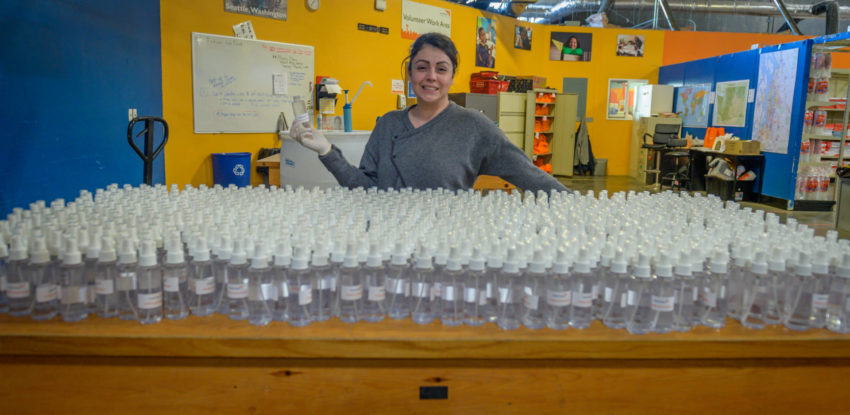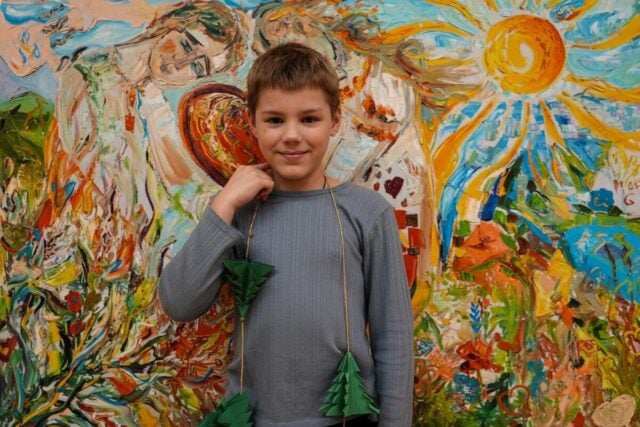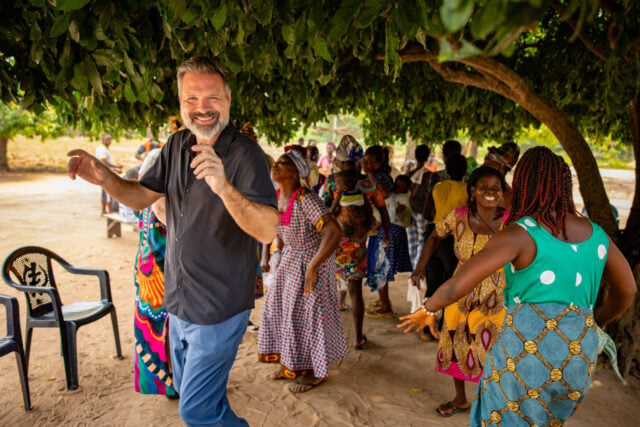The coronavirus outbreak in Asia was like a rumble of distant thunder in January and early February. That was before most of the world realized how quickly it could spread. By then, COVID-19 was already raging like a storm, and World Vision staff, who have decades of experience in disaster management and combating infectious diseases, had begun to fight it. Scaling up prevention is key to protecting children and families, and is therefore one of four key objectives of our coronavirus response.
“Our teams are reaching out to as many vulnerable children and their communities as possible to ensure that they have masks, soap, sanitizer, and the right health messages to ensure they can stay safe,” said John Teng, World Vision’s national director for China, in February.
Preventive measures and preparedness, including clear messaging on how to stay safe, have remained top priorities for World Vision staff — 37,000 strong — as they mobilize in more than 7 countries to meet the unique challenges the virus poses in different contexts and cultures.
In New York City, Chicago, Los Angeles, and other U.S. locations, World Vision is supplying Family Emergency Kits that churches deliver to vulnerable families identified by school districts. Each kit includes nutritious food for a family of five for a week, as well as hand sanitizer, disinfectant wipes, first-aid antiseptic, paper products, and children’s games and school supplies.
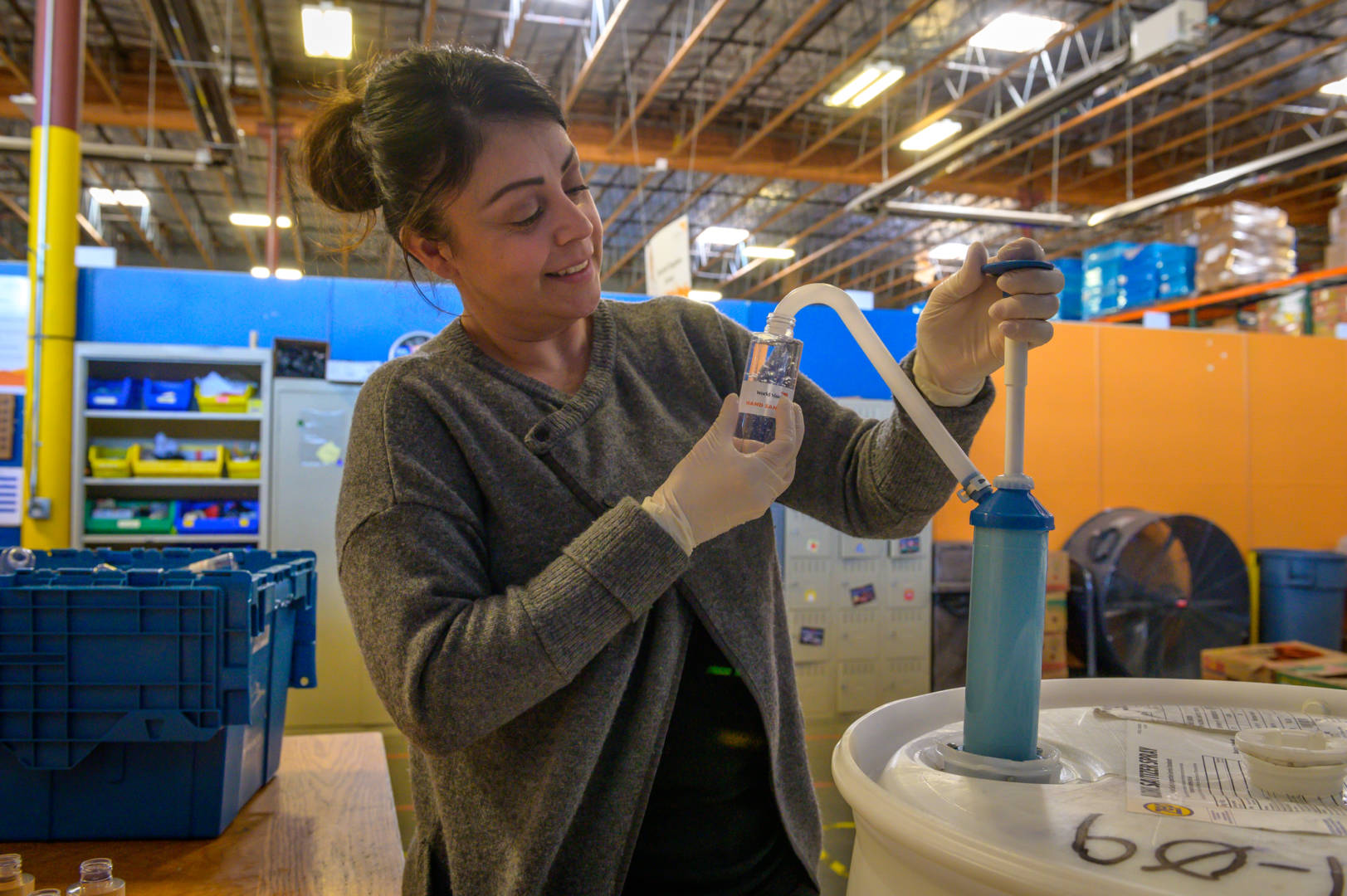
U.S. coronavirus response
With gloves on, Melina Marroquin — a mother of two in Federal Way, Washington — filled 4-ounce containers with sanitizing spray at World Vision’s Storehouse in Fife, Washington, in March. In a single day, she finished 1,700 of them, pumping the liquid from a 55-gallon drum of first-aid antiseptic.
“I can’t think of a better way to be of service,” says Melina. She says her goal was to make sure families received safe and effective hand sanitizer in their Family Emergency Kits. World Vision has partnered with churches across the U.S. to distribute 16,100 kits as of June 9.
Melina grew up in Guatemala and says that, as a child, she needed first-aid essentials and school supplies.
“My hope came in the shape of a World Vision truck,” she says. “I remember running after the truck when I was a little girl. World Vision would come to my village, and I would receive supplies. I was not a sponsored child, but I was helped too.
“Now, my life has come full circle. I am grateful to God to be of service to families who are in need now because of this crisis. I know we have a great God, and He’s walking with us.”
Global coronavirus response
In Mindanao, an island in the southern Philippines, village youth leaders from World Vision programs venture out daily to deliver hygiene messages over loudspeakers — safely, from the back of covered pickup trucks. “Not everyone in our community has access to internet or radio, so this is important,” says 16-year-old Romar.
Bangladesh is among the countries where World Vision works with influential faith leaders to share behavior change messaging with their congregations, including proper hand-washing techniques and temporarily not coming together to worship. More than 1,300 Bangladeshi faith leaders are among the 80,000 worldwide who, as of June 15, are disseminating preventive messages they learned from World Vision training.
And all around the world, World Vision has taught children to wash their hands properly with soap and provided the clean water they need to do it. We are a global leader in hand-washing education and clean water delivery — reaching one new person every 10 seconds with each of these critical resources.
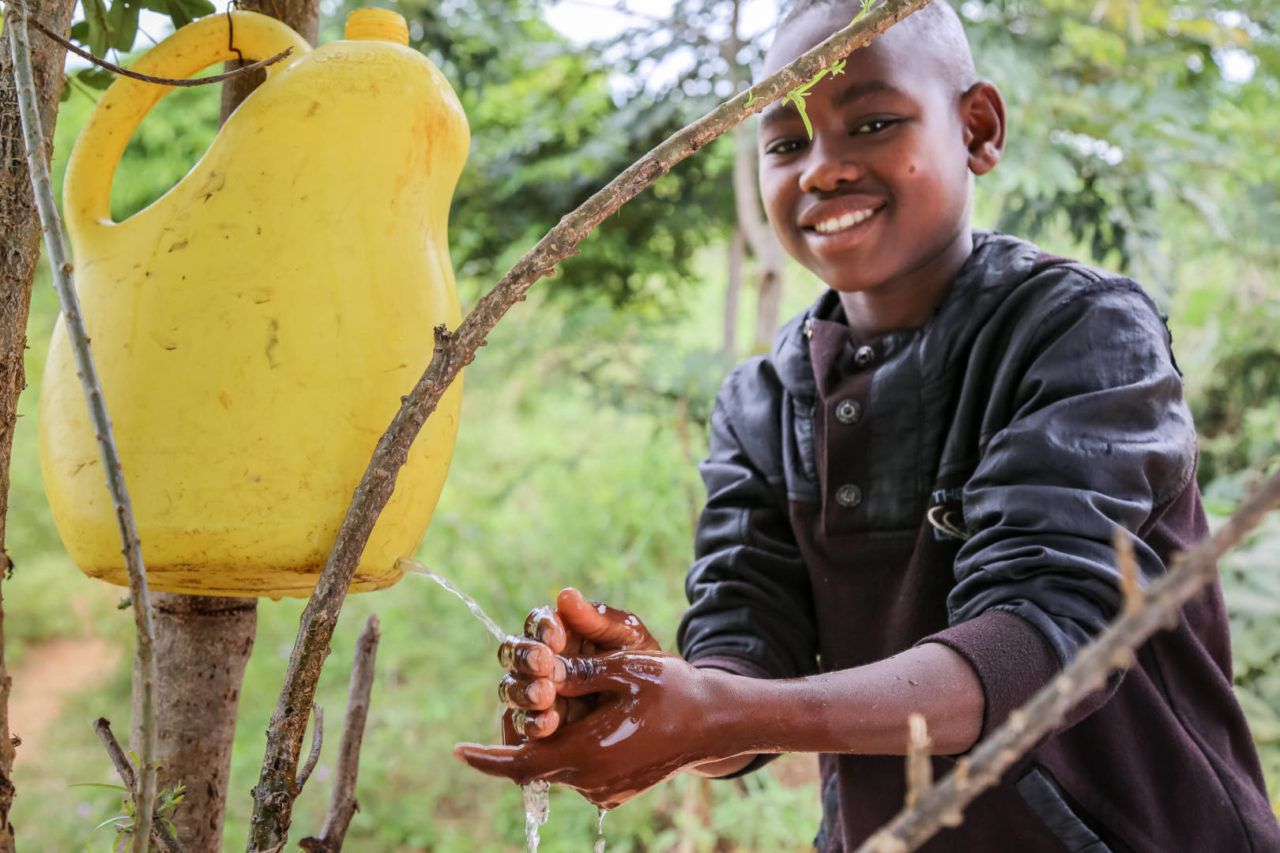
In Kenya, 10-year-old Junior and his brothers live with his widowed grandmother, Joyce Mwende Kavoo, and other relatives in a homestead in Mwala, a two-hour drive from Kenya’s capital, Nairobi.
“Since the coronavirus came into the country, we stopped going to school and church,” says Junior. “I miss reading and praying in church.”
He is keeping busy helping around the home, reading, and playing with his siblings. “I am reading my school textbooks I have with me and my class notes.”
Junior needs to keep his grades up. “I want to be a pilot when I grow up,” he says.
Together with his older brother, Junior made two hand-washing stations with local materials and hung them on trees at their home. They made them when they heard that the coronavirus had spread to Kenya because World Vision staff taught them that handwashing helps prevent the spread of diseases.
Junior’s grandmother, Joyce, is not well. She attributes her current poor health status to worry. “I have been thinking a lot because we don’t have enough food,” she says.
Joyce is the sole breadwinner for the family. She says the area she farms on is small, and she usually does not have enough money to buy certified maize seeds, which give better yields. “We only harvested one sack of maize recently, and it is finished,” she says.
Junior has been praying that the pandemic will end soon. “I have been praying we go back to school and for my grandmother to also get well,” he says.
Susan Otieno of World Vision’s Kenya staff and Sevil Omer, Lauren Reed, Kathryn Reid, and Laura Reinhardt of World Vision’s U.S. staff contributed to this story.
